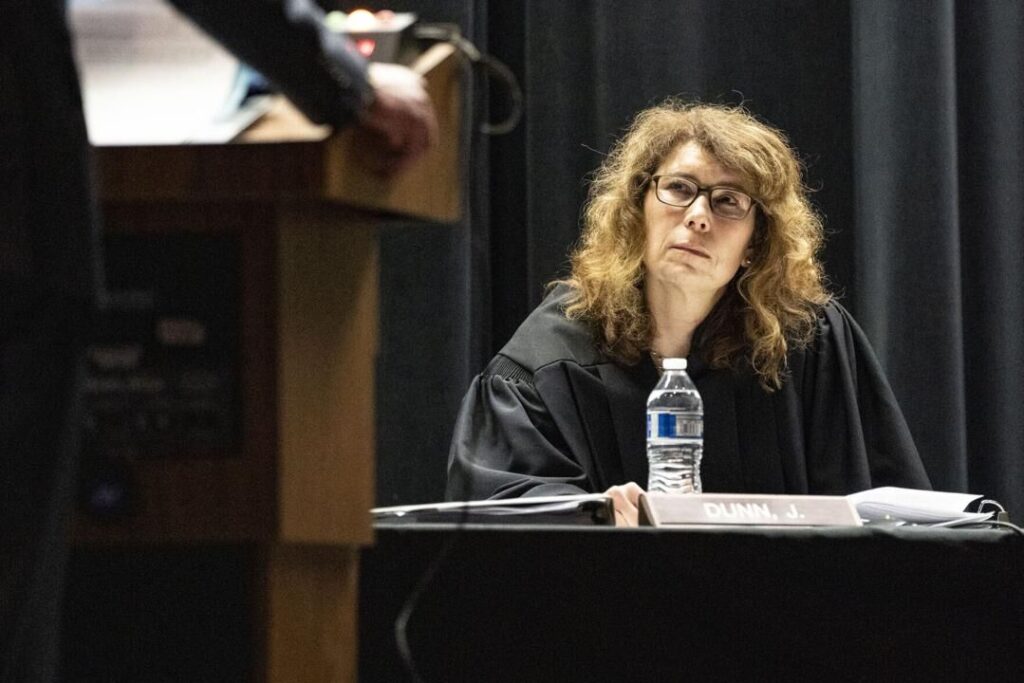Appeals court, prosecution, defense all agree judge violated Routt County defendant’s right to counsel
After the government and the defense both expressed rare agreement that a judge failed to ensure a Routt County defendant validly gave up his right to counsel, Colorado’s second-highest court ordered a redo of the proceedings on Thursday.
Jurors convicted Movses Mikaelyan in 2023 for the unauthorized use of a financial device. Shortly afterward, his public defender withdrew from the case. Mikaelyan filed a motion on his own requesting a new trial, alleging he received constitutionally ineffective assistance of counsel and that there was newly discovered evidence.
Although a new defense lawyer was appointed for Mikaelyan, he withdrew before the hearing on Mikaelyan’s motion.
At the January 2024 hearing, a public defender who was present but not representing Mikaelyan raised the concern that there was no new lawyer appointed and it was unclear if Mikaelyan knowingly and voluntarily waived his constitutional right to counsel.
Stephen A. Groome, a retired judge from a different judicial district who was assigned to the case, said the hearing was “scheduled quite a while back” and he had “seen some delaying tactics.” Groome also said if he postponed the hearing, he might revoke Mikaelyan’s bond and return him to custody.
After Mikaelyan questioned why there had been multiple judges on his case, Groome asked, “Do you want to proceed or do you want to explore getting another attorney appointed to represent you?”
“Can I explain what’s going on with my attorneys?” Mikaelyan asked.
“No, you can answer my question,” Groome said.
“I want to continue with my motion,” said Mikaelyan.
During the hearing, Mikaelyan said he was “kind of confused right now” and “the rules said certain things are going to happen.” But “I feel like the rules are just like you — you guys can do whatever you want.”
The public defender who was present also spoke up to say it “does not appear to me that he has received the benefit of an attorney’s advice” about how to conduct the hearing.
Groome denied the motion for a new trial.
On appeal, Mikaelyan’s attorney argued defendants are constitutionally entitled to counsel at every critical stage of a criminal proceeding. Before a defendant can represent themselves, trial judges need to ensure the defendant understands the consequences of that choice and ensure he is making the decision voluntarily.
In response, the Colorado Attorney General’s Office agreed Groome did not inquire whether Mikaelyan was making an informed choice to proceed by himself.
“There is no dispute that the court failed to conduct any inquiry or give Mikaelyan any advisement concerning his right of self-representation,” wrote Judge Elizabeth L. Harris in the Court of Appeals’ April 17 opinion.
Consequently, the court reversed Groome’s denial of the motion for a new trial and ordered another hearing, “during which Mikaelyan must be appointed counsel or must validly waive his right to counsel.”
Although the three-judge appellate panel did not address Mikaelyan’s other argument that Groome improperly denied him a hearing to dispute the amount of restitution owed to his victim, Harris noted the attorney general’s office agreed Groome was mistaken there, as well.
The case is People v. Mikaelyan.











